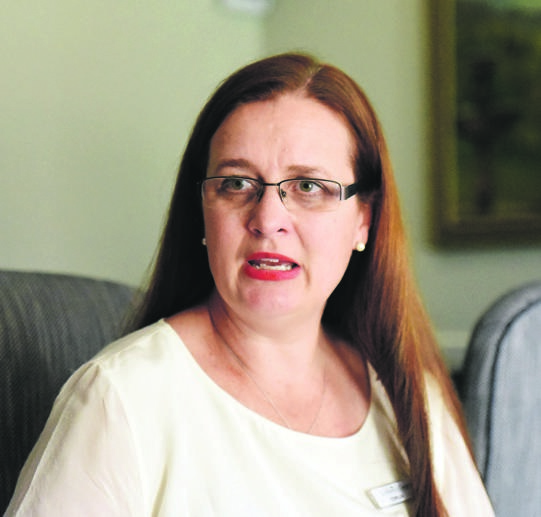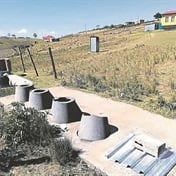
The sound of Lesley Gore belting out her 1963 hit, It’s My Party and I’ll Cry If I Want To, plays softly in the background as three elderly residents relax in the lush garden of their residence, trying their hand at dabbing pine cones with peanut butter and seeds.
The music and the cone-seeding combine therapeutic sounds with a stimulating activity for these residents at Livewell Village, a dementia care facility in Bryanston, Johannesburg. Music is used as a form of reminiscence therapy, helping the residents trigger their long-term memory; while simple activities like bird-feeding can invest them with a sense of self-esteem, of still being able to make a contribution, thereby adding to their quality of life and imparting a feeling of wellbeing.
Says Corlia Schutte, an occupational therapist at Livewell Village: “With elderly people our work as occupational therapists is more about adding to or enhancing their quality of life, so they don’t feel like, ‘Oh, I’m retired and now I’m just waiting to die.’
“We also focus on reinforcing the fact that they actually have something of value to still add in the world and should feel like they have something to contribute.
“We want to give them dignity, right until the last day of their lives,” she says as she details the work that goes into caring for those who can no longer care for themselves because of the disease.
According to Dementia SA, dementia is a progressive, degenerative brain disease that affects intellectual functions such as thinking, memory, behaviour and emotion, leading to gradual mental incapacity.
According to The World Alzheimer Report 2018 – released last month by Alzheimer’s Disease International, an international federation of 94 Alzheimer associations – 50 million people worldwide live with dementia. This number is set to increase to 152 million by 2050.
“Dementia is a brain disease and is most certainly not just about memory loss,” says Schutte.
“As sufferers digress, they move further into the past. Their recent memory is affected first, and then their short-term memory. After that it’s their long-term memory, and it can reach a stage where they can even lose their memory of how to swallow. This, as part of their loss of bodily function – because that too goes.”
The facility has 23 residents, aged between 53 and 93, and Schutte and the team of carers and healthcare advisers develop programmes of daily activities to help optimise the residents’ wellbeing and quality of life.
“Each diagnosis of dementia has its different approach, depending on which part of the brain is affected,” says Schutte.
“It is challenging because we’re working with people who were used to doing things for themselves and now find they are able to do less and less.
“Think of the way you brush your teeth – if someone now needs to brush your teeth for you and they don’t do it the way you have done it all your life, it subjects you to change in every way, and it can be frustrating for a dementia patient.”
So, in order to ensure that the patients have a sense of comfort, finding out what they liked before and how they liked it done, is important.
“We take each individual’s history into consideration and what they liked in the past. Did they like reading? What kind of music did they like? And it’s not just to accommodate them, but also to elicit fond memories –we can recreate some memories to give them comfort and help them feel safe,” adds Schutte.
Despite the challenging nature of this work – trying to slow the digression of a person’s brain, which, in some cases, even leads to them forgetting language – there are some victories that Schutte says makes her job worthwhile.
“The best part of the job is seeing someone’s eyes sparkle or light up when you’ve done the right thing at the right moment. You see the real person inside this diseased body and you make that connection. We all strive for that.
“One resident doesn’t really communicate anymore, doesn’t understand language anymore and can’t express himself, but his carer got him to write his signature and it was a huge celebration. He just remembered how. It’s something so small, but it was a huge deal for us,” she says proudly.




 Publications
Publications
 Partners
Partners








